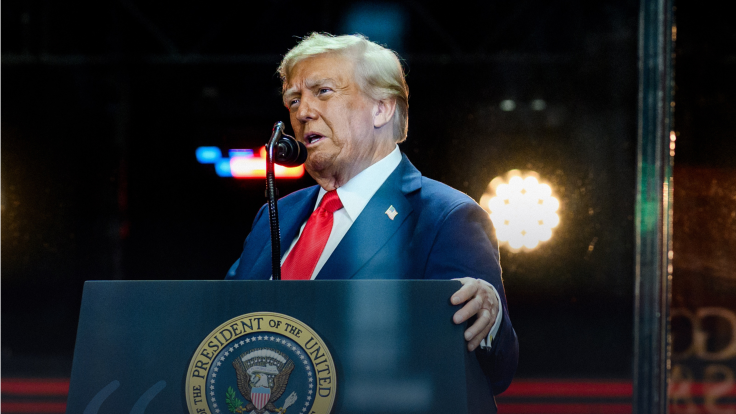What is 'Sharia Law' and Does London Really Want To Impose It As Donald Trump Says?
Sharia law explained: Understanding the facts behind Trump's claims about its role in London and British law

On 23 September 2025, during a speech at the United Nations General Assembly, US President Donald Trump made a bold claim that London, under its mayor Sir Sadiq Khan, is moving towards imposing Sharia law.
The comments have sparked immediate backlash from British officials and stirred confusion online. But what is Sharia law and is there any truth to Trump's assertion?
What Sharia Law Actually Means
Sharia, which translates to 'the correct path' in Arabic, refers the moral and legal framework that Muslims follow based on the teachings of the Quran and the sayings of the Prophet Muhammad, known as Hadith. It is not a singular code but rather a diverse body of law shaped by interpretations of Islamic scholars, a process known as fiqh. This system has existed for over a thousand years, evolving as Islamic societies expanded and diverse legal traditions emerged.
Sharia covers a wide range of aspects in Muslim life, including religious practices, daily activities, and personal conduct. However, there is no universal agreement on its application. Interpretations vary significantly depending on the religious scholar and the country in question. As such, what may be regarded as a strict interpretation of Sharia in one nation could be seen as more moderate in another.
Sharia Law in the Modern World
Sharia is often integrated into the legal system in many Muslim-majority countries. However, the extent to which it governs daily life varies widely. Some nations, such as Saudi Arabia, apply it more strictly, while others, like Indonesia, blend it with secular law. Despite this, the vast majority of Muslim countries do not administer the corporal punishments often associated with Sharia, such as amputation or stoning, as part of everyday legal proceedings.
In the UK, Sharia councils exist, but they serve an advisory role. These bodies deal primarily with issues such as marriage, divorce, and financial disputes within the Muslim community. Crucially, the decisions of these councils are not legally binding and cannot override the rulings of British courts. Justice Secretary Chris Grayling stressed in 2016 that only UK courts can provide legally binding judgments.
Trump's Comments on Sharia Law in London
In his 2025 UN address, Trump suggested that London might soon adopt Sharia law. This claim appears to be part of a narrative that has circulated in some political and media circles, often involving false or misleading information about Sharia's role in the UK.
For instance, in 2020, a fabricated quote attributed to Khan claimed that London was 'trialling Sharia law in three boroughs,' which was widely shared on social media. The Mayor's office swiftly dismissed this as false. In reality, Sharia law does not influence the legal system of London or the UK as a whole.
The UK has seen occasional debate about Sharia councils, but these councils operate within strict limits and British law remains the ultimate authority.
The Reality Behind Trump's Remarks
Donald Trump's claim that London is moving towards Sharia law is not supported by facts. Sharia councils in the UK have a limited role, mostly dealing with personal and religious matters within the Muslim community. British law remains the foundation of the country's legal system.
Sharia law, as practiced in Muslim-majority countries, is a complex and evolving system. While it is a source of debate in many parts of the world, it is not being adopted as a legal system in London or anywhere else in the UK.
© Copyright IBTimes 2025. All rights reserved.





















